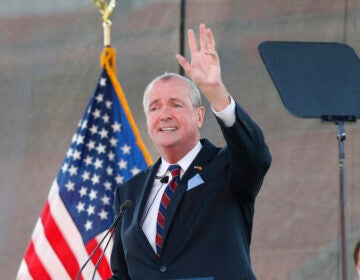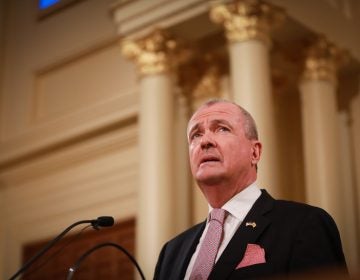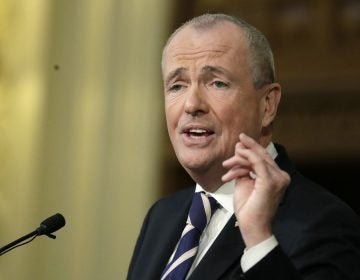Murphy offers lawmakers both carrot and stick to approve millionaire’s tax
Gov. Phil Murphy is upping the political ante in his bid to establish a true millionaire’s tax.
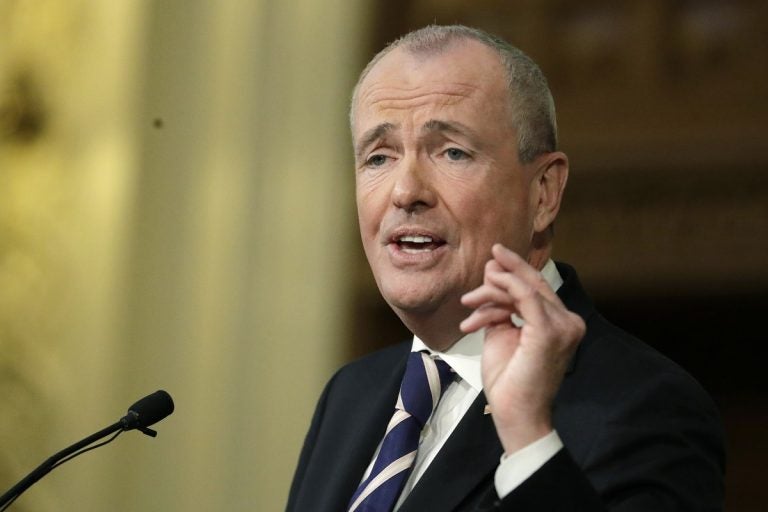
New Jersey Governor Phil Murphy. (Julio Cortez/AP Photo)
Gov. Phil Murphy is upping the political ante in his bid to establish a true millionaire’s tax, floating a new plan that would earmark the added revenue for property-tax relief and thereby forcing his opponents to face criticism that they are choosing to protect high-income earners over the middle class.
Announced during a town-hall event earlier this week, the Democrat said he could add another $250 million in spending on direct property-tax relief programs to his fiscal year 2020 budget plan, but only if lawmakers pass the millionaire’s tax.
The extra money for property-tax relief is being generated, in part, by an improved state revenue outlook as Murphy said the recent April tax-collection season has proven to be a good one, suggesting the state’s economic base is expanding.
Murphy can’t enact a millionaire’s tax without cooperation from lawmakers and he has faced strong opposition from leaders of his own party. But his new budget proposal sets up a dilemma for those who aren’t yet on board. By linking the surcharge to increased property-tax relief funding, Murphy is now giving lawmakers a way to juice spending on popular programs like the Homestead and Senior Freeze reimbursements just in time for this fall’s Assembly elections. At the same time, lawmakers who hold firm against the millionaire’s tax — which is popular with New Jersey voters — now run the risk of being accused of putting the interests of well-to-do millionaires over those of the struggling middle class.
The initial reaction from Assembly Speaker Craig
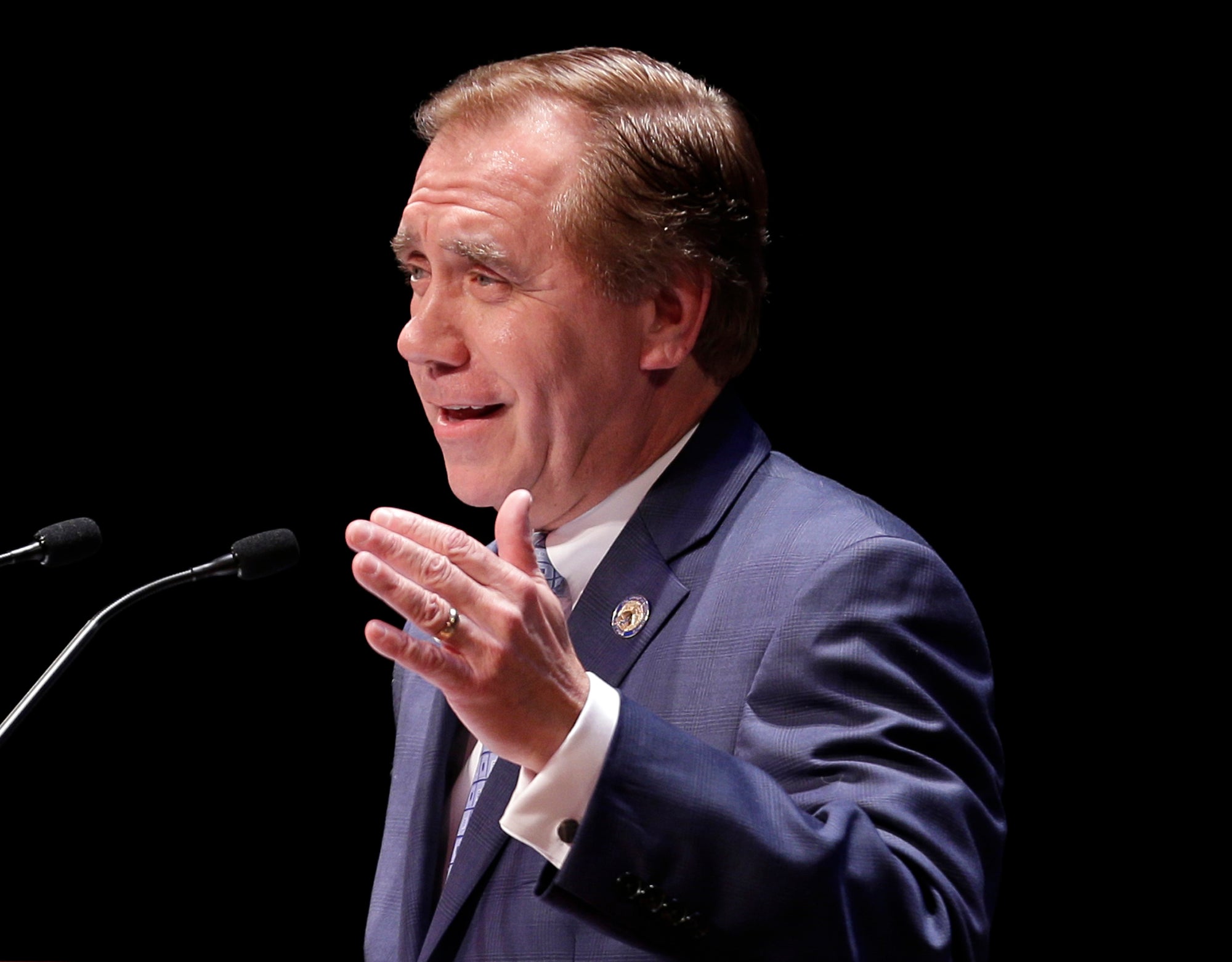
(D-Middlesex) came from a spokesman who called such budget talk “premature” but also didn’t outright reject the proposal. Senate President Steve Sweeney (D-Gloucester) took a more aggressive posture and suggested Murphy’s offer is a fiscal “gimmick.” But it also echoes tax policies Sweeney himself floated several years ago when Chris Christie was governor, something millionaire’s-tax supporters may use against him to pick off lawmakers’ votes in the weeks ahead.
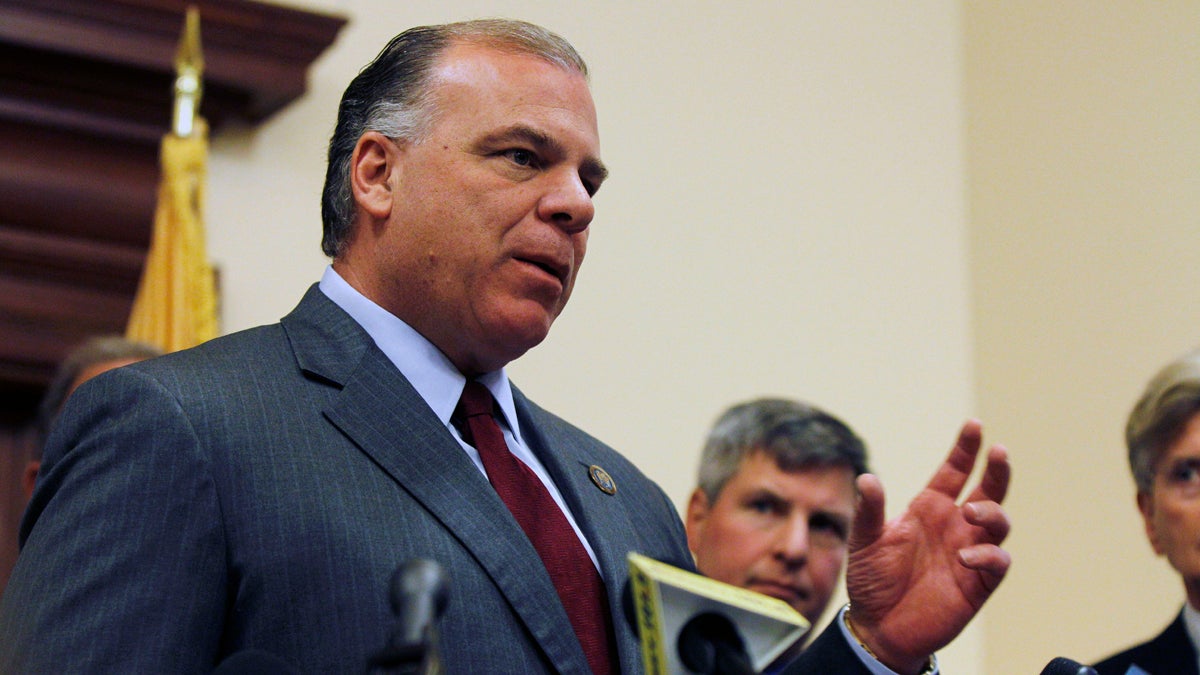
Ongoing battle
Under Murphy’s original budget plan for FY2020, the state would raise an additional $447 million by adding those who make between $1 million and $5 million to the group that pays the state’s highest tax rate. The additional revenue, generated by boosting their tax rate from 8.97 to 10.75 percent, would help fund increased investment in things like K-12 education and the public-worker pension system.
Murphy’s FY2020 budget marks his second effort to persuade lawmakers to establish a true millionaire’s tax in New Jersey. During budget talks last year, they ultimately struck a deal that established the higher rate only on earnings over $5 million.
This year, resistance to the millionaire’s tax from Coughlin, Sweeney and other lawmakers has persisted. They’ve raised general concerns about the need to restrain spending and have also said the state already relies too heavily on the income tax, which can be a volatile source of revenue. The legislative leaders have also pointed to ways the millionaire’s tax could impact high-income earners who, thanks to recent federal tax changes, can no longer take an unlimited deduction for state and local taxes (SALT).
Sweeney, a one-time sponsor of millionaire’s-tax legislation, repeated the SALT concerns in a statement issued yesterday in response to Murphy’s new budget proposal.
“It makes no sense to raise the millionaire’s tax until the SALT deduction is restored,” Sweeney said.
Governor has picked up support
But resistance to the millionaire’s tax is not unanimous among lawmakers. There have already been several defections in the Assembly, and Sen. Shirley Turner (D-Mercer) was personally pitching the millionaire’s tax as sound tax policy during Monday’s town hall in Ewing. With the crowd loudly chanting “millionaire’s tax” at numerous times during the event, Turner said balancing the state budget should not come at the expense of balancing the tax burden.
“Finally, we’re going to see fundamental tax fairness,” Turner said as she introduced Murphy.
Despite the fanfare at the town hall, the details of Murphy’s new proposal have yet to be clearly defined by his administration. Officials have suggested only that the new spending would be on direct-relief programs like Homestead and Senior Freeze without saying exactly how the new dollars would be distributed. Both tax-relief programs limit enrollment using longstanding income ceilings, and they also offer rebates or tax credits that have largely been kept flat even as average property-tax bills have continued to rise.
In his remarks, Murphy stuck to highlighting the top-line notion that, by linking the millionaire’s tax to enhanced funding for direct property-tax relief, he is offering lawmakers a more attractive deal.
“I think this sweetens the pot on the millionaire’s tax,” Murphy told the town-hall crowd in Ewing.
A rosier outlook for the state pocketbook
Meanwhile, Murphy’s town-hall remarks also suggested this year’s “April surprise” should be a net positive for the state after lagging revenues during the first part of the fiscal year had fueled concerns about a potential shortfall. More specific details will come out next week as state Treasurer Elizabeth Maher Muoio is scheduled to provide lawmakers with the last official revenue update for FY2019, which ends on June 30.
Kevin McArdle, a spokesman for Coughlin, pointed to Muoio’s upcoming testimony in a statement sent out yesterday in response to questions about Murphy’s new budget proposal.
“While we are pleased to hear of better than expected early revenue returns, we will wait for the Treasurer’s revenue report next week,” McArdle said. “The budget committee is still working through the budget process. Making any deal would be premature.”
Meanwhile, Sweeney’s response focused more on a series of cost-cutting proposals he’s backing this year, including initiatives that would reduce the cost of public-worker health and pension benefits. Those proposals would also reduce costs for local governments that rely heavily on property taxes, he said.
“We need a real budget with long-term, sustainable property tax savings, not gimmicks,” Sweeney said.
But Murphy’s proposal does hit on a property-tax relief message that Sweeney himself championed in 2012, when Republican Chris Christie was governor and trying to persuade lawmakers to pass an across-the-board income-tax cut. Christie’s proposal would have given the biggest tax breaks to the wealthy, and at the time, Sweeney called for there to be more focus on providing property-tax relief for the middle class, including by using tax credits to help offset property taxes.
“It’s not the income tax that’s the problem these days, it’s the property tax,” Sweeney told NJTV at the time. “We’ve coddled millionaires long enough in this state. We don’t need to give them any further tax cuts at the expense of the middle class.”
WHYY is your source for fact-based, in-depth journalism and information. As a nonprofit organization, we rely on financial support from readers like you. Please give today.


